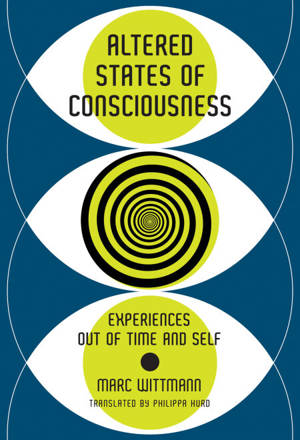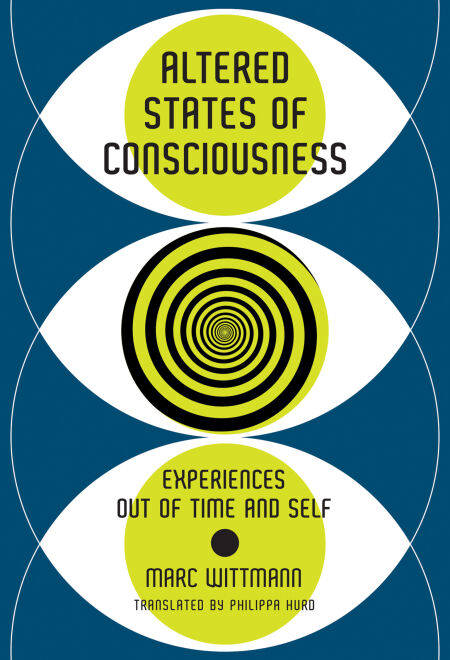
Bedankt voor het vertrouwen het afgelopen jaar! Om jou te bedanken bieden we GRATIS verzending (in België) aan op alles gedurende de hele maand januari.
- Afhalen na 1 uur in een winkel met voorraad
- In januari gratis thuislevering in België
- Ruim aanbod met 7 miljoen producten
Bedankt voor het vertrouwen het afgelopen jaar! Om jou te bedanken bieden we GRATIS verzending (in België) aan op alles gedurende de hele maand januari.
- Afhalen na 1 uur in een winkel met voorraad
- In januari gratis thuislevering in België
- Ruim aanbod met 7 miljoen producten
Zoeken
Altered States of Consciousness E-BOOK
Experiences Out of Time and Self
Marc Wittmann
E-book | Engels
€ 21,63
+ 21 punten
Uitvoering
Omschrijving
What can altered states of consciousness—the dissolution of feelings of time and self—tell us about the mystery of consciousness?
A groundbreaking study of out-of-body-experiences, drug intoxication, and shock—perfect for readers interested in psychedelics, psychology and meditation.
During extraordinary moments of consciousness—shock, meditative states and sudden mystical revelations, out-of-body experiences, or drug intoxication—our senses of time and self are altered; we may even feel time and self dissolving. These experiences have long been ignored by mainstream science, or considered crazy fantasies. Recent research, however, has located the neural underpinnings of these altered states of mind. In this book, neuropsychologist Marc Wittmann shows how experiences that disturb or widen our everyday understanding of the self can help solve the mystery of consciousness.
Wittmann explains that the relationship between consciousness of time and consciousness of self is close; in extreme circumstances, the experiences of space and self-intensify and weaken together. He considers the emergence of the self in waking life and dreams; how our sense of time is distorted by extreme situations ranging from terror to mystical enlightenment; the experience of the moment; and the loss of time and self in such disorders as depression, schizophrenia, and epilepsy. Dostoyevsky reported godly bliss during epileptic seizures; neurologists are now investigating the phenomenon of the epileptic aura. Wittmann describes new studies of psychedelics that show how the brain builds consciousness of self and time, and discusses pilot programs that use hallucinogens to treat severe depression, anxiety, and addiction.
If we want to understand our consciousness, our subjectivity, Wittmann argues, we must not be afraid to break new ground. Studying altered states of consciousness leads us directly to the heart of the matter: time and self, the foundations of consciousness.
A groundbreaking study of out-of-body-experiences, drug intoxication, and shock—perfect for readers interested in psychedelics, psychology and meditation.
During extraordinary moments of consciousness—shock, meditative states and sudden mystical revelations, out-of-body experiences, or drug intoxication—our senses of time and self are altered; we may even feel time and self dissolving. These experiences have long been ignored by mainstream science, or considered crazy fantasies. Recent research, however, has located the neural underpinnings of these altered states of mind. In this book, neuropsychologist Marc Wittmann shows how experiences that disturb or widen our everyday understanding of the self can help solve the mystery of consciousness.
Wittmann explains that the relationship between consciousness of time and consciousness of self is close; in extreme circumstances, the experiences of space and self-intensify and weaken together. He considers the emergence of the self in waking life and dreams; how our sense of time is distorted by extreme situations ranging from terror to mystical enlightenment; the experience of the moment; and the loss of time and self in such disorders as depression, schizophrenia, and epilepsy. Dostoyevsky reported godly bliss during epileptic seizures; neurologists are now investigating the phenomenon of the epileptic aura. Wittmann describes new studies of psychedelics that show how the brain builds consciousness of self and time, and discusses pilot programs that use hallucinogens to treat severe depression, anxiety, and addiction.
If we want to understand our consciousness, our subjectivity, Wittmann argues, we must not be afraid to break new ground. Studying altered states of consciousness leads us directly to the heart of the matter: time and self, the foundations of consciousness.
Specificaties
Betrokkenen
- Auteur(s):
- Vertaler(s):
- Uitgeverij:
Inhoud
- Aantal bladzijden:
- 190
- Taal:
- Engels
Eigenschappen
- Productcode (EAN):
- 9780262347747
- Verschijningsdatum:
- 3/09/2018
- Uitvoering:
- E-book
- Beveiligd met:
- Adobe DRM
- Formaat:
- ePub

Alleen bij Standaard Boekhandel
+ 21 punten op je klantenkaart van Standaard Boekhandel
Beoordelingen
We publiceren alleen reviews die voldoen aan de voorwaarden voor reviews. Bekijk onze voorwaarden voor reviews.









